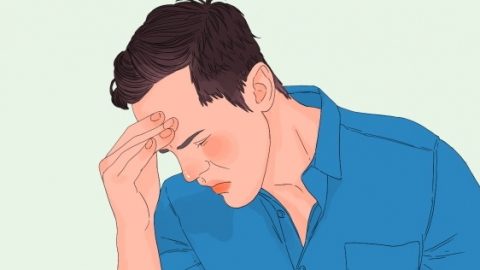What are the symptoms of premature ejaculation?
Generally, patients with premature ejaculation may experience symptoms such as fatigue, shortened sexual intercourse duration, inability to control ejaculation, yellow urine, and difficulty achieving or maintaining an erection. If these discomfort symptoms occur, it is recommended to seek timely diagnosis and treatment at a reputable hospital. Detailed analysis is as follows:
1. Fatigue
Long-term effects of premature ejaculation can lead to psychological stress in patients, resulting in symptoms such as mental depression and physical fatigue. In daily life, these symptoms might manifest as difficulty concentrating and low mood, which in turn can negatively affect sexual performance.
2. Shortened Sexual Intercourse Duration
During sexual intercourse, the time to ejaculation is significantly reduced, typically less than two minutes. Some patients may even ejaculate before penetration, making sexual intercourse difficult to carry out normally and failing to satisfy both partners' sexual needs.

3. Inability to Control Ejaculation
This is one of the core symptoms of premature ejaculation. Although patients may desire to delay ejaculation during sexual activity, they often find it difficult to control voluntarily. When they feel the urge to ejaculate, ejaculation occurs quickly and cannot be regulated by willpower alone.
4. Yellow Urine
In some cases, premature ejaculation may be caused by kidney deficiency, which can lead to symptoms such as yellow urine and dry mouth.
5. Erectile Difficulty
Some patients with premature ejaculation may also experience erectile dysfunction. During sexual activity, they may find it difficult to maintain sufficient penile rigidity or sustain an erection for an adequate duration. This is often related to psychological factors such as anxiety and excessive stress, with both conditions influencing each other.
In addition, some patients may develop fear or avoidance of sexual activity. If these symptoms persist, it is recommended to promptly visit the andrology or urology department at a formal hospital for examination, identify the underlying causes, and receive appropriate treatment. Meanwhile, maintaining a positive mindset in daily life can help alleviate these symptoms.






